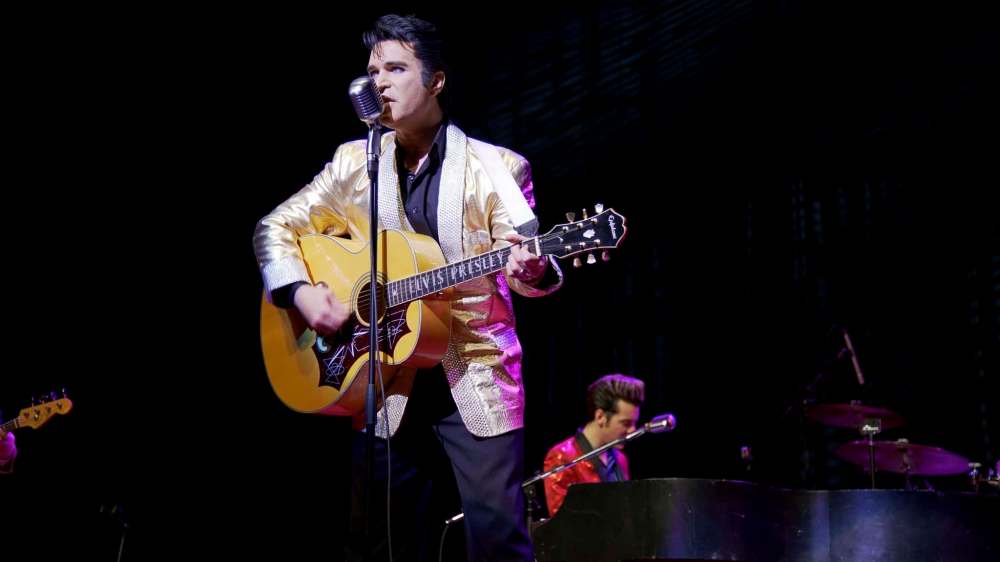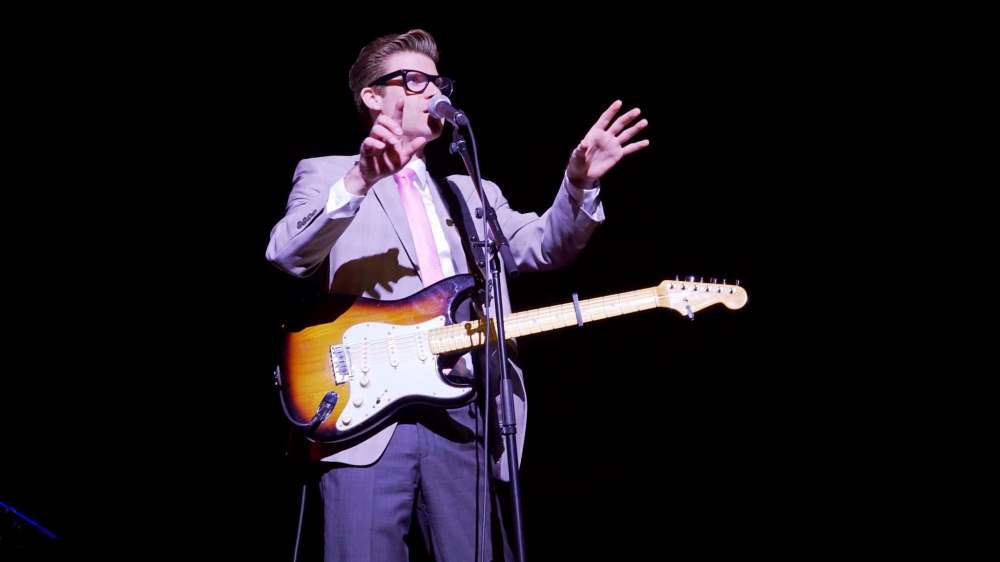Doc on tribute stars lacks some lustre
Potentially terrific material, but Winnipeg director's effort doesn't quite hit the right notes
Advertisement
Read this article for free:
or
Already have an account? Log in here »
To continue reading, please subscribe:
Monthly Digital Subscription
$19 $0 for the first 4 weeks*
- Enjoy unlimited reading on winnipegfreepress.com
- Read the E-Edition, our digital replica newspaper
- Access News Break, our award-winning app
- Play interactive puzzles
*No charge for four weeks then billed as $19 plus GST every four weeks. Offer only available to new and qualified returning subscribers. Cancel any time.
Read unlimited articles for free today:
or
Already have an account? Log in here »
Hey there, time traveller!
This article was published 07/06/2019 (2040 days ago), so information in it may no longer be current.
Rock ’n’ roll will never die, but it will go grey, as the concert audiences in this sometimes fascinating, frequently frustrating documentary suggest.
In Almost Almost Famous, Winnipeg-based director Barry Lank tags along with former Winnipegger Marty Kramer, who worked with the Guess Who back in the day and is now tour manager for a tribute show. Marty is wrangling a couple of van loads of musical impersonators on a cross-country tour.
The Class of ’59 imagines a stage on which Jerry Lee Lewis, Jackie Wilson, Elvis, Buddy Holly, Bill Haley and the Big Bopper are all playing together. Zooming in on Lance Lipinsky as Lewis, Bobby Brooks as Wilson and Ted Torres as Elvis, the film looks at the rather poignant paradox of gaining fame by performing as somebody else, a tricky balancing act the three men handle very differently.

The men’s musicality is impressive, but even more crucial is their ability to connect with fans. Audience members come up to them after the shows, wanting to take pictures with Elvis, touch Haley’s kiss curl and share memories of when they were young.
Lank conveys the tediousness and frustrations of life on the road — pretty standard stuff in music docs — with sequences that suggest the blurred, interchangeable nature of airports, highways and hotels. There’s footage of people sleeping in odd places and a backstage scene in which the mild-mannered Jeff Giles, who dons the big black glasses to play Holly, does a sad, riffing little song about where he’ll eat after the show. (“Every town we go to, only place open after 5:00/ Is Tim Hortons,” he intones plaintively.)
There is some Behind the Music-style drama. In particular, Kramer gets visibly exasperated with the up-and-down Lipinsky, who can alternate between trying to steal the spotlight from his fellow musicians and barely phoning it in. Kramer’s threats — that there are 10,000 guys who could do this job and anybody could be replaced at any time — become almost comic through repetition.
The showboating Lipinsky is a piano prodigy, and he can be electric onstage. (“Hey, you wild teens,” he says to the aging audience to get them all riled up.) But he chafes about his “day job” as an impersonator when he really wants to be concentrating on his own original music.
Torres, who is a former world-champion Elvis impersonator, is surprisingly low-key. He believes a tribute artist has to be absolutely sincere onstage — which comes out in his reverent performance of the King’s gospel music — but also has to separate himself clearly from his subject offstage. He’s also aware of the expiry date that comes with impersonating a man who died at age 42.
Brooks was discovered at a karaoke bar. (As anyone who’s spent any time at a karaoke bar knows, this must be incredibly rare.) His approach to Jackie Wilson’s music ends up being very personal, with a jaw-dropping — jaw-dropping! — revelation at the film’s midpoint.
There’s a lot of potentially terrific material here, but Lank sometimes struggles with how to handle it. There are points where you wish he would open things up to bigger questions, like the whole poignant dynamic of the nostalgia industry.

Lank could also look harder at the costs of borrowed fame and the weird emotional wear and tear of the tribute performance. The attention-hogging Lipinsky, in particular, has a neediness that would make for some interesting psychological exploration. There are also a couple of scary stage fathers here, including a brief drop-in from Bruno Mars’s dad.
Finally, that Big Reveal, while pretty darn big, could have landed with more power.
alison.gillmor@freepress.mb.ca

Alison Gillmor
Writer
Studying at the University of Winnipeg and later Toronto’s York University, Alison Gillmor planned to become an art historian. She ended up catching the journalism bug when she started as visual arts reviewer at the Winnipeg Free Press in 1992.
Our newsroom depends on a growing audience of readers to power our journalism. If you are not a paid reader, please consider becoming a subscriber.
Our newsroom depends on its audience of readers to power our journalism. Thank you for your support.


